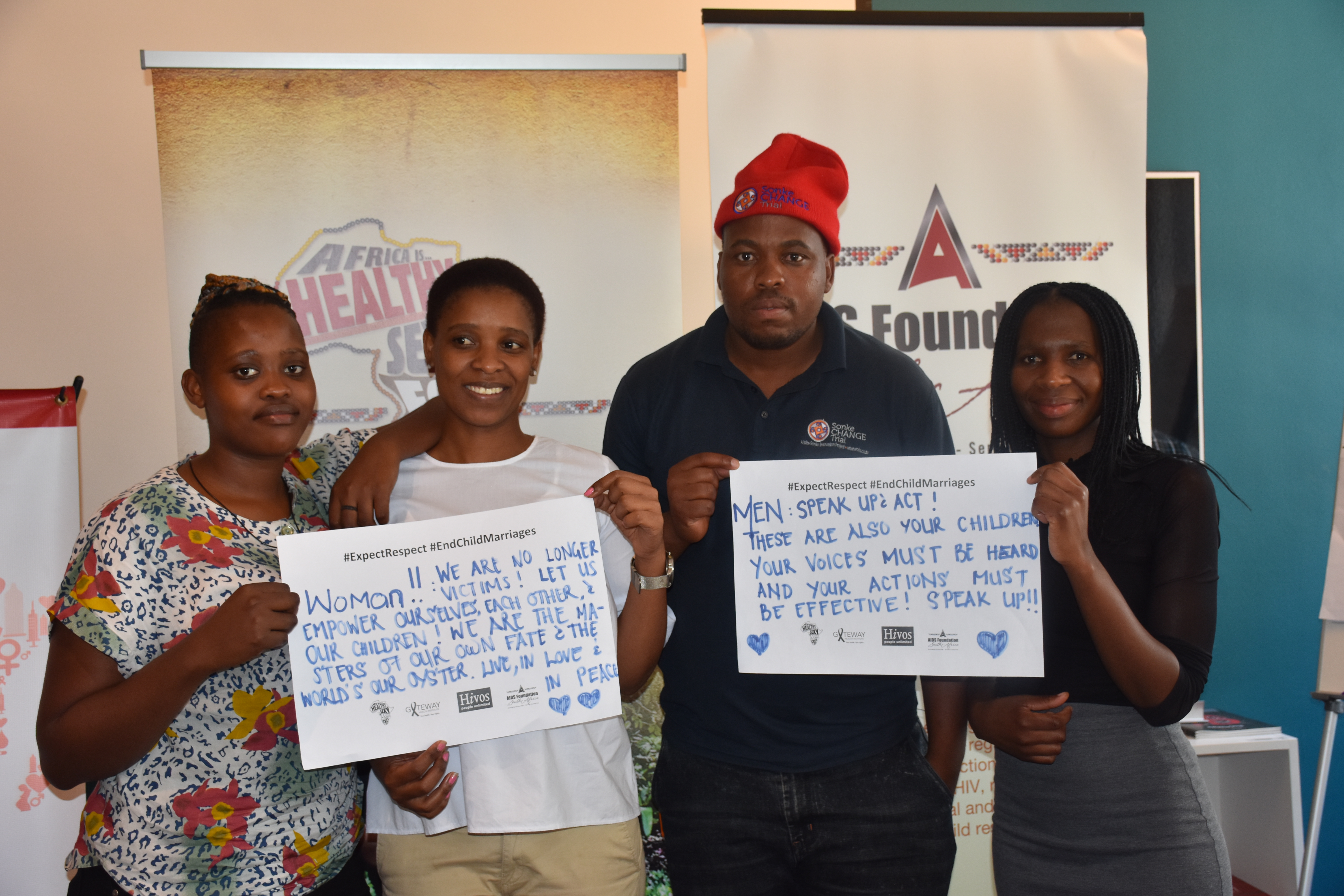Hivos Southern Africa in collaboration with Gateway Health Institute and the AIDS Foundation South Africa hosted a Networking Learning Discussion on Early and Forced Marriage. The dialogue titled: Child Marriage and Sugar Daddies held on Thursday 9 November 2017 featured youths from different institutions in South Africa. The main aim of the dialogue session was to create spaces for youth organizations and individuals to network and take steps towards ending child marriages in the region.
Child Marriage Rampant in Today’s World
The latest international estimates indicate that worldwide, more than 700 million women alive today were married as children. Seventeen per cent of them, or 125 million, live in Africa. According to a report by Gilrs Not Brides in 2015, approximately 39 percent of girls in sub-Saharan Africa are married before the age of 18. Child marriage is a human rights violation. Despite laws against it, the practice remains widespread, in part because of persistent poverty and gender inequality. In developing countries, one in every four girls is married before reaching age 18.
A discussion by participants led to the sharing of their views on the major issues in child marriages. It was agreed that poverty is the major driver of child marriages. Child marriage is also a strategy for economic survival as families marry off their daughters at an early age to reduce their economic burden. Child marriage disproportionately affects young girls, who are much more likely to be married as children than young boys. Often, children engage in transactional sexual practices to support their siblings when the parents are not able.
An important aspect of child marriages in South Africa raised in the discussion was that child marriage cuts across all races. It does not only affect blacks as is commonly perceived but also includes young girls from other races. One participant shared how her Asian high school classmate had to leave school for marriage at a tender age. It is therefore important to look at this issue holistically in order to apply appropriate mitigation measures.
There is need to unlearn certain cultural practices which greatly influence child marriages. Practices like ukutwala, a practice of abducting young girls, mostly virgin girls under the age of 18 and forcing them into marriage, often with the consent of their parents, is still prevalent in South Africa.
Curse of Unplanned Pregnancies
Teenage pregnancy in the African society is considered a disgrace especially when the father of the unborn child denies responsibility for the pregnancy. Many times girls are forced into marriage especially when the parents hold certain positions of authority in the society. Additionally, in many parts of Southern Africa, a girl cannot be readmitted into her parents’ home once she spends a night away from home. The girl is considered “spoilt” and has to return to wherever she spent the night and often times, young girls are forced to elope to their boyfriends and immediately become wives.
Way Forward for Child Marriages
Following a group discussion, participants presented on what needs to be done to curb child marriages. It was noted that there is a need to involve young people in evidence based research in order to facilitate evidence based planning of interventions targeted at reducing the incidence and eventually eradicating child marriages.
“There is a death of literature on sexual and reproductive health issues in young people”, said the Thabisani Ncube, programmes officer at Aids Foundation South Africa. “Well thought ideas by young people fall off because there is no evidence based research”, he added.
Need for Access to Safe Pregnancy Termination
Participants emphasized the need to make available affordable, appropriate and safe abortion options for unplanned pregnancies. In addition, participants noted that children need to be taught about sexuality from an early stage so that they are able to make informed decisions on sexuality.
Further a multisectoral approach is key to ending child marriages. This involves sensitization of community leaders (political and religious leaders), men and women, boys and girls on the negative effects of child marriage. Additionally, law enforcers need to be trained to professionally handle child marriage cases accordingly.







